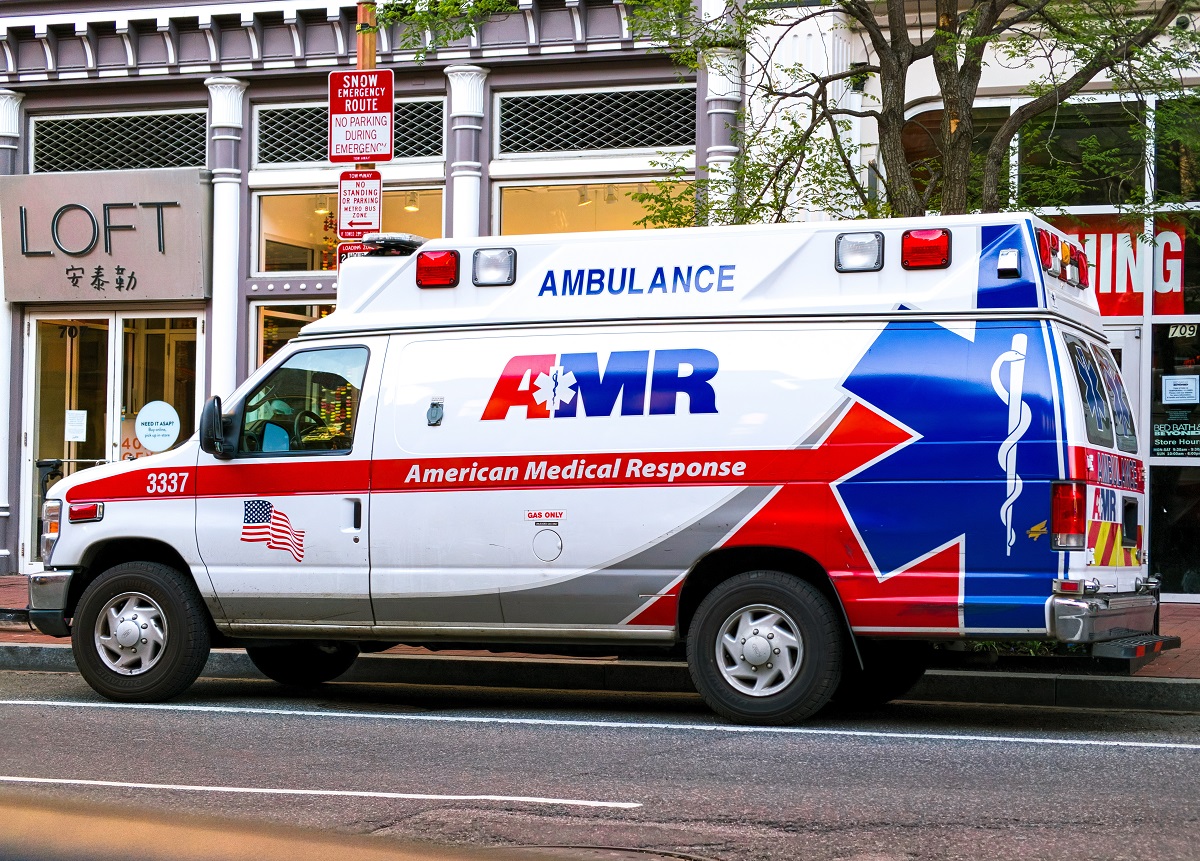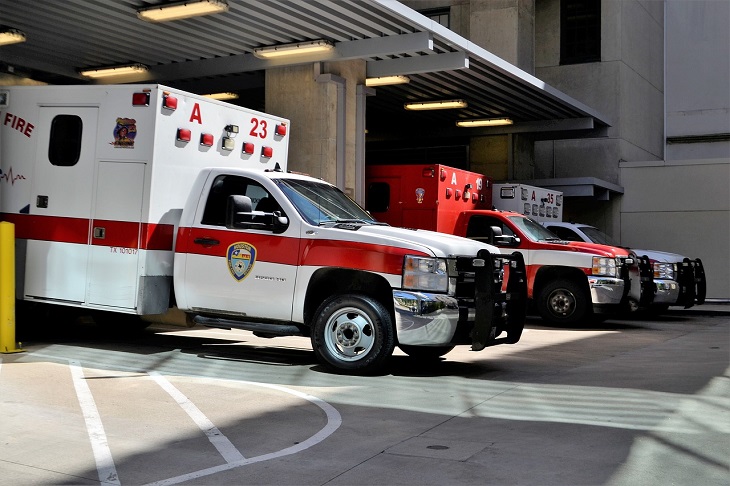Can An Ambulance Park In A Handicap Spot?

Who can park in disabled parking spaces? We know that disabled parking permit holders are entitled to park in handicap spaces, but are there any exceptions to the rules for disabled parking?
Disabled parking space rules and regulations are enshrined in the Americans with Disabilities Act (ADA). Disabled parking spots exist in every US state and are located as close as possible to the buildings and amenities they serve. These spaces usually offer the quickest access to public areas.
Handicap spaces exist to improve the lives of people with various disabilities and mobility issues. In every US state, handicap spaces are available to be used by a disabled permit holder from any US state, as well as holders of several overseas disabled parking permits.
But what are the exceptions for parking in a handicap spot? Can an ambulance park in a handicap spot under certain circumstances? Is it a criminal offense to park in a disabled bay if you do not have a disabled permit in your vehicle, and how can you report illegal handicap parking? Below, we’ll answer all of these important questions and more.
Can An Ambulance Park In A Handicap Spot?
The laws about ambulance parking vary state by state. In most states, an ambulance can park in a handicap spot under certain specific circumstances. If an ambulance is transporting a disabled person, it can park in a handicap spot for up to 15 minutes. If it is on an emergency call, it can park in a handicap spot for a limited time. In most other circumstances, an ambulance cannot park in a disabled parking space.

Exceptions For Parking In A Handicap Spot
So, what are the rules for what drivers and vehicles can legally park in disabled parking spots? The only vehicles that can legally park in handicap parking spaces are:
- A vehicle that is currently being used by a disabled parking permit holder, while the permit is in the vehicle
- A vehicle that has a permit because it transports disabled people, while it is on official business and transporting disabled people
- Ambulances when they are transporting disabled people, for up to 15 minutes
- Emergency vehicles when they are on “hot calls”.
Is It A Criminal Offence To Park In A Disabled Bay?
Yes, it is a criminal offense to park in a disabled bay if you do not hold a disabled parking permit.
How To Report Illegal Handicap Parking
If you see illegal parking in a handicap parking bay, you can report it by taking the vehicle’s registration and:
- Flagging down a parking attendant or police in the area
- Calling your local police non-emergency line
- Calling your local parking enforcement team
- Submitting photos to the Parking Mobility app.
Rules For Disabled Parking
The rules for disabled parking are:
- Only permit holders may park in disabled parking spots.
- It is illegal to use a handicap permit that is not your own.
- There must be a legally required number of disabled parking spaces in every area and parking lot.
- Disabled parking spaces must be clearly signposted.
- Disabled parking spaces must be of the correct size and dimensions and located as close as possible to an accessible entrance to the building or amenity they serve.

How Can You Get A Disabled Parking Permit?
If you do not yet have a disabled parking permit, the best way to get one is to visit the Dr. Handicap online clinic. You will have a consultation with a medical professional in your state who will verify your disability and complete an application form for disabled parking. You can then submit the application to your local disabled parking authorities. (Disabled parking authorities are different in each state, but it is usually the local DMV.)
What Types Of Disabled Parking Permits Are Available?
You can get the following types of disabled parking permits in most states:
- Permanent disabled parking placard
- Permanent disabled parking license plate
- Temporary disabled parking placard
- Disabled Veterans license plate
- Organizational disabled parking permit
Where Are Handicap Parking Permits Valid?
Handicap parking permits are valid in all US states, as well as in all US overseas territories and several foreign countries including Canada, Mexico, UK, EU, Australia, New Zealand, and Japan.
Featured image by Obi Onyeador on Unsplash